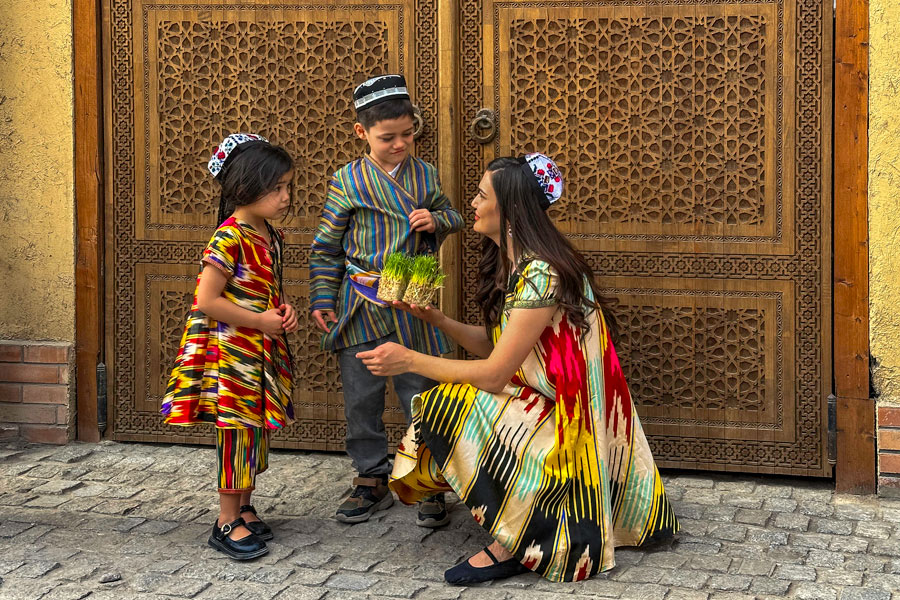
Makhalla (Uzbek quarter) is a keeper of Uzbek traditions. It is an entire system of relations between inhabitants of one quarter, which has existed in Uzbekistan over centuries and which has influenced on the development of Uzbek traditions and life style. In some way, it is the form of community, united on a small area.
A mosque or chaykhana is considered the center of makhalla. Once the area of makhalla was determined by the voice of muezzin, who called people to pray from the top of a minaret: those houses, where his voice could be heard, were deemed to be a part of that makhalla. Chaykhana is the place where men gather to discuss news and inner life of the quarter (gap). Also they discuss many issues in everyday life, because makhalla is a self-governing administrative unit.
Some makhallas were established from the union of craftsmen, who had workshops close to their houses. Such makhallas got their names thereby. Some makhallas were named in honor of monuments and sights, which were located on its territory. Others got names after a city or village, from which the residents of these makhallas came.
The makhalla feature is that all residents live in peace and harmony with each other, respect and care for the elders, help each other, watch over the cleanness and order on the street. Also, the whole makhalla helps its residents in weddings, funerals and other events.
Life in makhalla is based on definite unwritten rules. So the law “shafat” protected residents from “strangers” who could break the adopted life style. If any resident of makhalla wanted to sell his house, first he offered it to his relatives, then to the neighbors and then to other residents of makhalla. No-one could break this rule. Today many Makhall rules and laws are mitigated.
Today Uzbekistan numbers over 10 thousand makhallas. Some of them are not limited to a quarter of cottages and private houses, now a makhalla can be a group of multistory houses. As before, makhalla helps people to live in peace and harmony, playing an important role in culture and life style of its residents.

